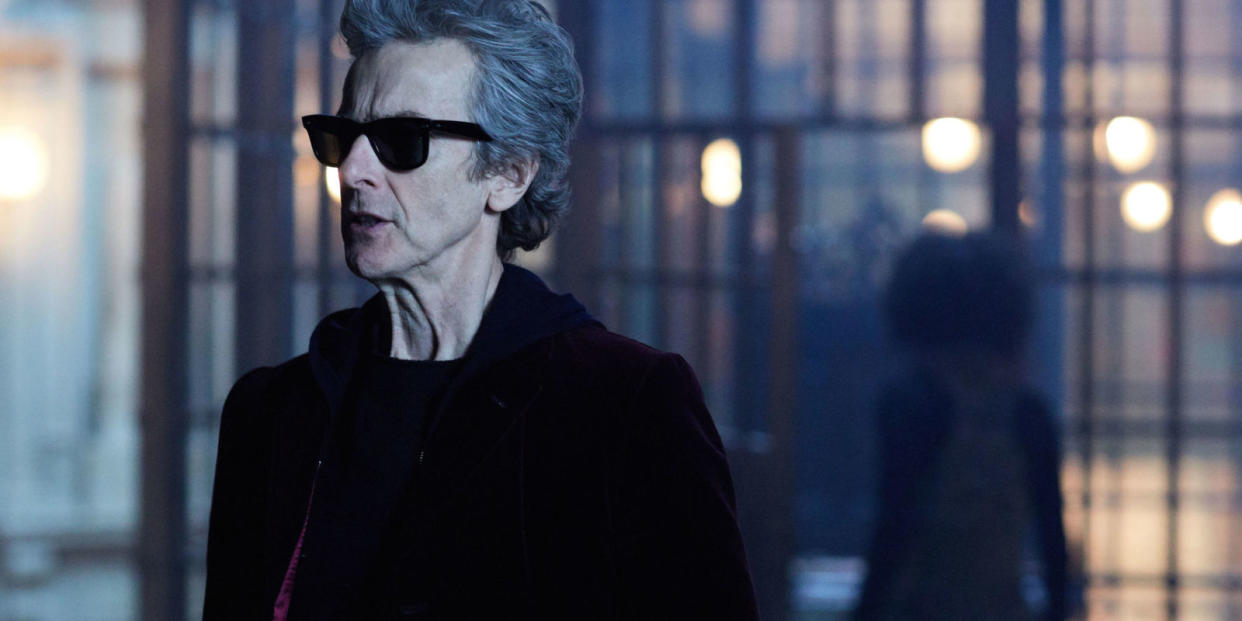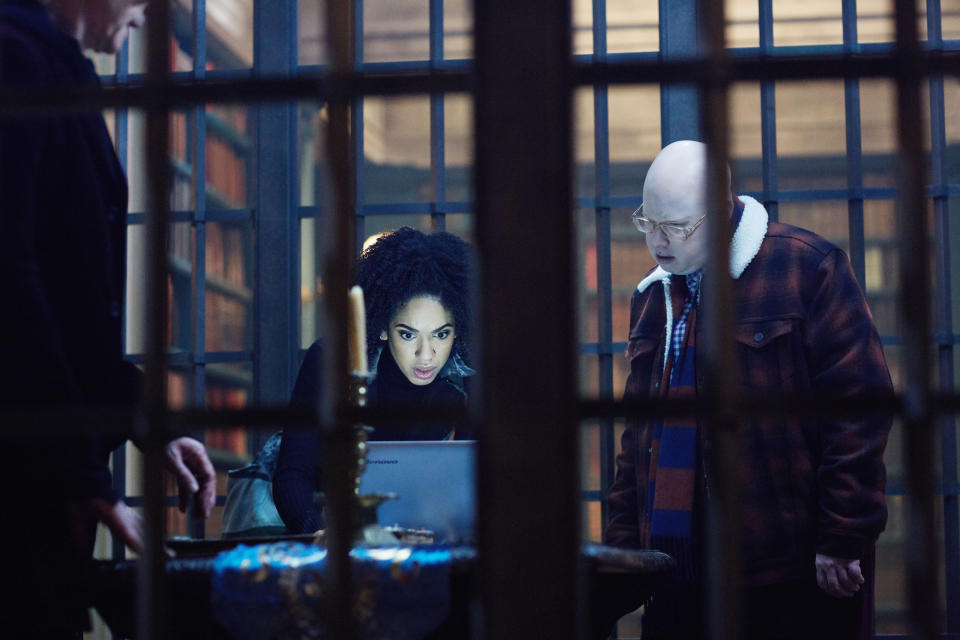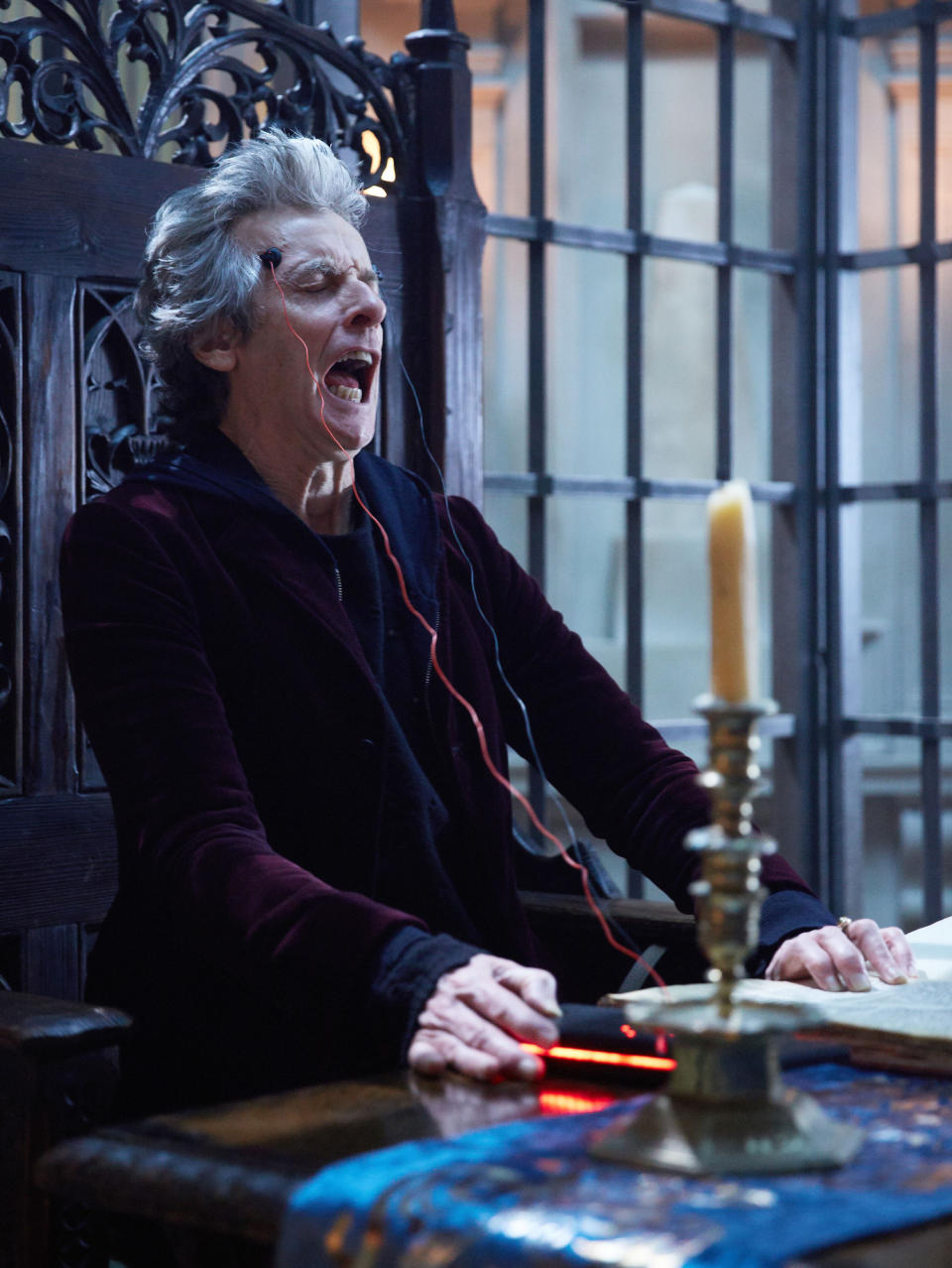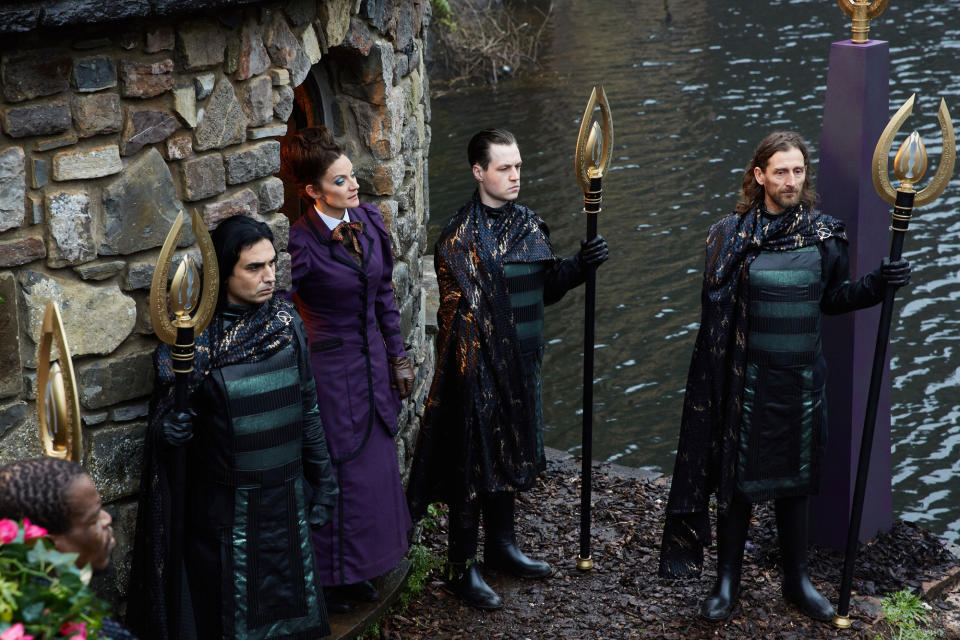Doctor Who review: 'Extremis' gets lost in the dark

There's a lot going on in 'Extremis' – perhaps too much.
So far this series, Doctor Who has been spinning gold by telling simple stories with a fresh energy and confidence. It's felt as though, in his final year as head writer and series boss, Steven Moffat has decided to give the finger to critics who've dismissed his era as too complex and confusing, stripping the show back to its very essentials.
This week's outing, though, feels like a step backwards. Starting and ending in two totally different places, and leaving the audience baffled in between, It's anything but straightforward, going against the back-to-basics ethos that previous episodes have adhered to.

We begin with an ancient text, written in a lost language and buried in a secret library. Intrigued? There's more. Anyone who translates this "Veritas" and learns its truth lays down and dies. A bit like the video of Radiohead's 'Just'. Or The Name Of The Rose.
It's a strong hook, one that might have been compelling enough to carry an entire episode were it given the breathing room. Instead, 'Extremis' jumps from one idea to the next – from a book that kills you to virtual realities and musings on the nature of being. And that's just in the episode's first timeline – we haven't even got to the flashbacks yet.
Variety is essential to Doctor Who – it always has been – but it feels odd to have the show lurch so abruptly from stripped-back storytelling to such a dense episode, containing a wild medley of concepts.

It wouldn't be so much of a problem if 'Extremis' was shot through with the same kind of wit and energy as previous episodes, but while there's some cracking lines here and there (albeit borrowed from The Long Kiss Goodnight – "Never assume – assumption makes an ass out of you and Umption."), this is a lot moodier and much less of a romp than any episode of series 10 so far.
In particular, the Doctor's ongoing blindness makes the whole thing feel bleak. Last week, it was an interesting twist, making our rather infallible hero a little more vulnerable. While that was refreshing in the short-term, it rather saps the fun out of the character the longer it goes on.
Eventually all these dark, disparate elements do start to come together to form something more solid and straightforward, as Bill (Pearl Mackie) and Nardole (Matt Lucas) stumble from the Vatican's library to a space-age hub of portals, each one leading to a different destination.
Except none of them leads anywhere real – every single location, from the Vatican to the Pentagon to CERN, is an artificial construct. Or, as Nardole puts it, it's "like the Holodeck on Star Trek, or a really posh VR without a headset".

The malevolent force pulling all the strings has built a practice Earth, a "shadow" of the real thing in which to practice world domination. The Veritas was an attempt to expose all of this, and now the fake Doctor, the fake Bill and the whole fake human race know the truth. Hence the mass suicides.
"It's like Super Mario working out what's going on," the Doctor (Peter Capaldi) notes. "And deleting himself from the game, because he's sick of dying."
Even when the answers come, though, they're a little underwhelming, mostly because we've been here before. Despite incorporating a vast wealth of big ideas into the episode, the concept at the crux of 'Extremis' is one that Moffat's used in the past. A facsimile Doctor who who believes he's experiencing something for the first time, only to discover he's actually lived it over and over, dying again and again? Isn't that just 'Heaven Sent'?
But this Matrix-style reveal is vexing for another reason, because it reveals 'Extremis' to have all been one big tease. Its chief reason for existing, we suppose, is to establish the threat of the Monks – the hideous fiends behind all this. But while we might know their methods by episode's end, we know precious little about what they are, or why they do what they do.
Though their presence is felt throughout, the Monks don't even appear till almost halfway through the episode and get precious little screen time after that. It's easy to imagine younger viewers getting restless, because while 'Extremis' has plenty of interesting notions, it's short on eye-grabbing visuals and explosive action.

The best thing about the episode, something that works totally and in isolation, is the flashback sequences. They pretty much stand apart from the rest of the episode, leaving you with the feeling that they're inserted into 'Extremis' only because we're halfway though the series and now's probably the right time to reveal what's in the Vault.
Spoiler: it's Missy – and these scenes, revealing just how the character ended up in the universe's swankiest prison cell, work chiefly because of her. Ivanno Jeremiah of Humans also delivers a game turn as Rafando, but Michelle Gomez is just superb, revealing a Missy who's a little less wild-eyed and a little more vulnerable than we're used to seeing. In fact, though she's not in the episode a whole lot, we'd venture to say that 'Extremis' features Gomez's best performance in Doctor Who to date.
Whenever she's not on-screen though, which is most of the time, 'Extremis' is interesting but lacks the fizz, the drive, the exuberance of previous episodes. Like the forbidden library, it feels "designed to confuse the uninitiated" – so while it may work in retrospect, as chapter one of a larger story, taken on its own, this chaotic, melancholic adventure is just a little frustrating.
Want up-to-the-minute entertainment news and features? Just hit 'Like' on our Digital Spy Facebook page and 'Follow' on our @digitalspy Twitter account and you're all set.
You Might Also Like

 Yahoo News
Yahoo News 
